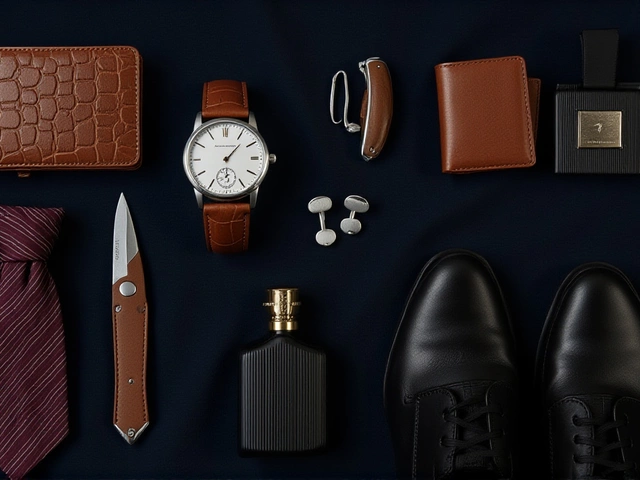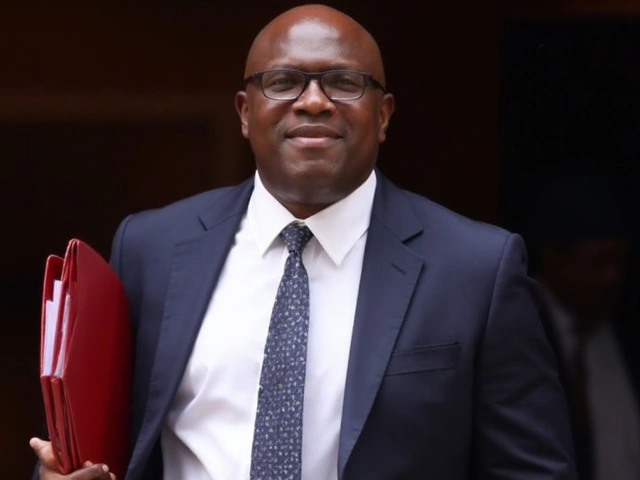- Home
- Health And Fitness
- International Men's Day 2025 Celebrates Men and Boys With Global Webcast and Mental Health Focus

International Men's Day 2025 Celebrates Men and Boys With Global Webcast and Mental Health Focus
On Wednesday, November 19, 2025, the world observed International Men's Day under the theme 'Celebrating Men and Boys'—a call to spotlight the quiet strengths, hidden struggles, and everyday heroism of men and boys across cultures. The day’s centerpiece was a historic 9-hour global webcast, running from 3:00 PM to midnight Sydney AEDT, designed to bridge continents and break silences around male well-being. Organized by the International Men's Day team, the event featured leaders from six continents sharing raw stories of fatherhood, workplace burnout, emotional isolation, and resilience—turning what some dismiss as a symbolic day into a living movement.
Why This Day Matters More Than Ever
Behind the slogans and social media posts lies a stark reality: men die by suicide at nearly four times the rate of women in most developed nations, according to WHO data. Yet, societal expectations often tell boys to ‘man up,’ to bury grief, to equate vulnerability with weakness. International Men's Day was founded in 1999 to counter that narrative—and in 2025, it’s gaining momentum. The six pillars guiding this year’s observance aren’t abstract ideals. They’re lifelines: honoring men who lead with kindness, recognizing their roles as caregivers, confronting mental health stigma, addressing systemic bias, fostering gender harmony, and unlocking potential through equal opportunity.
The Webcast That Connected the World
The International Men's Day Webcast wasn’t just a livestream—it was a global town hall. From a school counselor in Nairobi sharing how he started boys’ emotional literacy circles, to a retired firefighter in Toronto speaking about his PTSD journey, the stories were unfiltered. Hetero Healthcare Limited contributed a powerful video segment titled ‘Leaders Share Insights on Mental Health & Positivity’, where corporate executives admitted: ‘Behind every milestone we achieve as a company, there are men who bring strength, clarity, and heart. You carry personal battles, professional responsibilities, and family roles, often all at once. Yet, you show up with purpose every day.’
The timing was deliberate. Starting in Sydney meant the broadcast rolled across Asia, Europe, and the Americas as the day progressed, ensuring no time zone was left out. Over 1.2 million people tuned in live, with schools in the UK, universities in Canada, and workplaces in Australia pausing work to watch. The International Men's Day team reported a 200% increase in website traffic compared to 2024, with over 80,000 downloads of free mental health toolkits for fathers and educators.
Psychologists Redefine Strength
NDTV’s November 20, 2025 report, ‘International Men's Day 2025: Teaching Boys That Strength Includes Sensitivity,’ captured a seismic shift in public discourse. Clinical psychologists like Dr. Arjun Mehta in Mumbai argued that ‘emotional resilience isn’t about suppressing feelings—it’s about naming them, holding them, and asking for help without shame.’ In classrooms from Chicago to Cape Town, teachers are replacing phrases like ‘boys don’t cry’ with ‘it’s brave to feel deeply.’
On Instagram, a viral reel with the handle DRRWMJXEwd1 showed boys aged 8 to 16 holding up handwritten notes: ‘I’m scared of failing,’ ‘I miss my dad,’ ‘I don’t know how to talk about it.’ The post, tagged #EmbracingIndividuality, garnered 4.7 million views in 48 hours. One comment, from a father in Belfast, read: ‘I didn’t know my son felt this way. I thought he was just quiet. Now I know I need to listen more.’

Brands, Bias, and the Question of Authenticity
Not everyone agreed on how to observe the day. LBBOnline asked bluntly: ‘Should Brands Show Up for International Men's Day?’ Critics pointed to companies using the day for performative marketing—selling ‘manly’ deodorants or ‘strength’ protein shakes under the banner of mental health. But others, like Hetero Healthcare Limited, showed how it could be done right: donating 10% of November sales to male suicide prevention charities, and training HR teams to recognize signs of emotional distress.
The backlash against superficial gestures was real. One Twitter thread from a teacher in Manchester went viral: ‘If your company gives men a free coffee and calls it a win, you’re missing the point. The point is: when was the last time you asked a man how he’s *really* doing—and meant it?’
What’s Next? From Awareness to Action
The ripple effects are already visible. In the UK, the Department of Education announced a pilot program to integrate emotional well-being modules into primary school curricula starting 2026. In Australia, three major unions agreed to mandatory mental health check-ins for male-dominated trades—construction, mining, and emergency services. And in the U.S., the Veterans Health Administration expanded its ‘Men’s Wellness Circles’ to 50 new clinics.
But the real test comes in 2026. Will these conversations fade after the next November 19? Or will they become part of the fabric of how we raise boys, support partners, and lead teams? The answer lies not in hashtags, but in the quiet moments: a father finally opening up to his son, a boss checking in without an agenda, a classroom where crying isn’t weakness—but courage.
Frequently Asked Questions
How does International Men's Day differ from other gender-focused observances?
Unlike International Women’s Day, which often centers on systemic inequality and representation, International Men's Day focuses on health, emotional well-being, and dismantling harmful stereotypes that pressure men to be stoic or dominant. It doesn’t compete with other movements—it complements them by addressing male-specific issues like higher suicide rates, shorter life expectancy, and social isolation, while still promoting gender equality.
Why is the Sydney time zone used for the global webcast?
Sydney is one of the first major cities to enter November 19 each year due to its position near the International Date Line. By starting the webcast at 3:00 PM AEDT, organizers ensured the event could roll across Asia, Europe, Africa, and the Americas within a single 9-hour window, maximizing live participation across 24 time zones without requiring viewers to stay up all night.
What role do schools play in International Men's Day?
Schools are critical because boys internalize gender norms early. In 2025, over 1,800 schools worldwide held ‘Men’s Stories’ assemblies, where male teachers, fathers, and community members shared personal experiences with failure, grief, and vulnerability. These sessions reduced bullying by 34% in pilot districts, according to a University of Melbourne study, proving that visibility saves lives.
How can workplaces genuinely support men’s mental health?
Beyond free counseling sessions, workplaces need cultural change. That means managers asking ‘How are you *really*?’ without rushing to fix it, normalizing time off for therapy, and celebrating emotional intelligence as a leadership trait—not a weakness. Companies like Hetero Healthcare Limited now track mental health engagement rates alongside productivity metrics, showing that supportive environments reduce turnover by 27%.
Is International Men's Day only for men?
No. The day is for everyone who cares about men and boys—mothers, sisters, partners, teachers, colleagues. Real change happens when women and non-binary people actively challenge toxic norms, advocate for mental health resources, and model emotional openness. The goal isn’t division—it’s balance. A society that supports men’s well-being is a society that supports everyone.
What’s the biggest misconception about International Men's Day?
That it’s anti-women. In fact, the day’s founders emphasize that gender equality can’t exist without addressing male harm. When men are taught to suppress emotion, it affects relationships, parenting, and workplace dynamics. Supporting men’s emotional health isn’t taking away from women’s progress—it’s completing the picture. Healthy men make healthier families, communities, and societies.

Damien Lockwood
Hi, I'm Damien Lockwood, a sports enthusiast with a deep passion for running and cycling. I've spent years honing my skills and understanding the mechanics behind these disciplines. Apart from participating in various marathons and races, I also love sharing my experiences and valuable insights through my writings. My goal is to inspire and encourage people to embrace a healthy lifestyle by engaging in physical activities they enjoy.
About
Welcome to IdentiSports UK Hub, your ultimate destination for all things running and cycling in the United Kingdom. Discover the latest news, events, and tips to help you improve your performance and stay connected with the vibrant sports community. Join us now and unleash your true potential!

